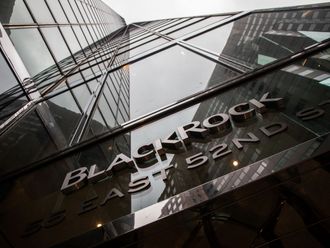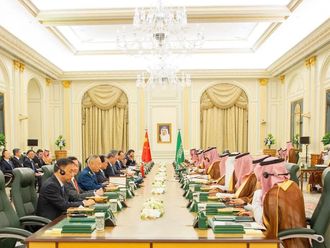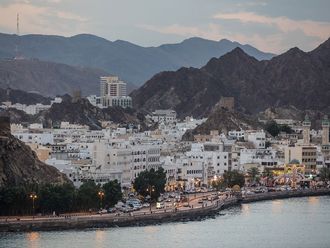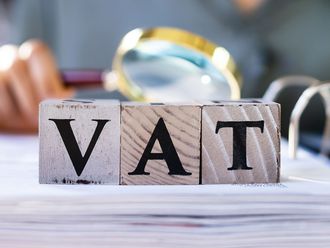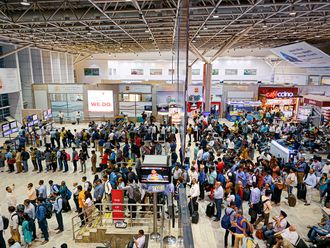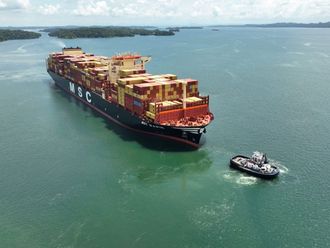Dubai: I recently visited Egypt, Brunei and Sri Lanka and want to share some observations on Islamic finance and the halal industry from those countries. There is genuine demand for "real" Islamic finance in these countries. However someone has not only to address the challenges, but also take a leadership role.
My first trip to Cairo opened my eyes to the potential of wholesale and retail Islamic finance in a country that can rightly claim to have "given birth to Islamic banking". The possibilities are greater than the combined potential of the UK, China, Russia, France and Australia, and possibly greater than the existing Islamic finance hubs in Muslim countries, at the retail level.
However, there are a number of challenges for Egypt to overcome if Islamic finance is allowed to fin-ancially assist a country in contributing to, say, necessary domestic infrastructure projects. That said, Egypt can immediately contribute to Islamic finance globally, and one of its best exports is human talent.
Some call this the "brain drain". This human talent, in the form of Sharia scholars, is the need of the hour for this niche market as it would help ease a significant bottleneck.
In Egypt, there is no shortage of scholars at Al Azhar University. And one of its most famous graduates, Dubai's Dr Hussain Hamid Hassan, regularly travels from Kazakhstan to Kenya to explain Islamic banking to central banks, regulators, and politicians, among others.
Egypt can be the ‘exporter' of a natural intellectual commodity: English-speaking and Arabic-understanding, well-trained, and capital market-savvy Sharia scholars. Hence, we may be on the way to finding consensus for product ruling, structures, and transactions.
Brunei presents a fresh and ambitious vision for the halal industry, Halal Brunei brand, and combined with its commitment to Islamic finance, presents a unique Islamic finance/halal industry offering. Chapter two of the Quran, Surah Al Baqarah, makes direct reference to permissibility of trade and prohibition against interest (2:275-79), and consumption of "lawful and wholesome foods" (2:168). Yet, like "twins" separated at birth, they are now reuniting 1,400 years later, possibly in Brunei.
But the halal industry has many challenges, and Brunei could be well positioned to address some of them. It can be said Islamic finance became more focused and structured with the birth of the Accounting and Auditing Organisation for Islamic Financial Institutions (AAOIFI) (1991) and Islamic Financial Services Board (IFSB) (2003), as they have established guidelines for Islamic financial institutions. Now the Islamic and non-Islamic institutions have a starting point for better understanding about accounting and auditing, governance, and prudential regulations, etc.
Halal industry challenge
For example, one of biggest challenges for the halal industry is there is no international body equivalent to the AAOIFI or IFSB. One of the speakers at the fifth IHMC in Brunei mentioned 24 certification bodies in their country, which rather than providing a road map, causes a great deal of confusion. A global halal industry body on certifications, to be used as guidelines, is the now need of the hour as the status quo is not satisfactory.
At the same event, an interesting comment by Nestle managing director Peter Vogt, from Switzerland, spoke of 55 factories where halal food was manufactured. My thought, initially, was "How were they financed?" What an incredible opportunity for bridge-building between Islamic finance and the halal industry. This type of factory and its offerings are truly asset-backed, hence, why not issue a sukuk, assuming all things are equal, for its next factory in say, Malaysia or Indonesia for halal product.
Sri Lanka has been involved with Islamic finance for nearly a decade and has had more experience than the newly announced Islamic finance hubs of Malta and Australia.
As the post-war era has brought a peace dividend to Sri Lanka, the country now offers a more compelling and immediate opportunity for Islamic finance than, say, the larger India. India presents potential with a population of 200 million Muslims, but Sri Lanka is the reality of the day. Regulators are open-minded and welcoming, private sector financial institutions have had an Islamic finance offering for years, including two Islamic windows, takaful, and the central bank has provisionally approved an Islamic bank, Amana Bank, to be regulated under the banking act.
Sri Lanka needs to transform the peace dividend and the incoming GCC tourists, with thoughts on declaring itself an Islamic finance hub for South Asia. The country can not only build an Islamic "finance causeway" to south India, the Islamic finance-oriented state of Kerala, and Bangladesh, but also the Maldives and Mauritius.
Islamic finance needs to look ahead five to 10 years to new jurisdictions for growth and answers to bottlenecks, and these same jurisdictions may well have underutilised assets that can be monetised for country revenue, development, and publicity via Islamic finance.
The writer is global head of Islamic Finance at Thomson Reuters. Views expressed are his own and do not reflect that of his organisation or of Gulf News.


